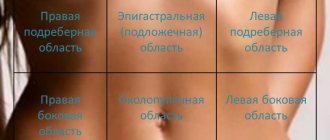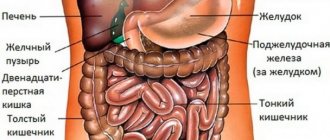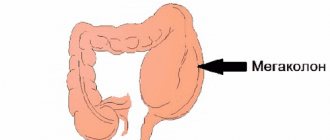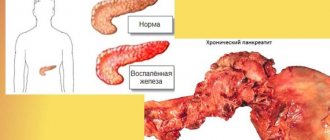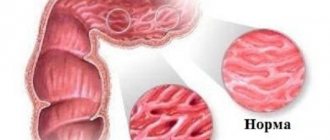The stomach is pulsating - a phenomenon that can be noticed by people of different age categories. Normally, pulsation can appear after a long stay in an uncomfortable position for a person, sports training, or stressful situations.
Doctors strongly recommend not to ignore pulsation. Its presence may be a sign of various serious diseases that require immediate medical intervention.
Natural non-dangerous causes of pulsation in the abdomen
You may feel some fluttering in your stomach due to the body being in an unusual position for a long time.
Sometimes this is just a consequence of physical labor or sports. But most often, pulsation in the stomach is felt after stressful situations. After all, the walls of this digestive organ are intertwined with the tenth pair of cranial nerves.
Therefore, many complaints about beating in the abdomen come from patients suffering from vegetative-vascular dystonia. This uncomfortable sensation only worsens the patient's condition.
In some cases, strong pulsation in the stomach occurs due to a simple reason - overeating. Due to excess food in the stomach, its walls are stretched.
As a result, the nerves located inside the lining of the digestive organ produce return impulses from the vagus nerve. This phenomenon enhances motor skills, which is why some pulsation may appear in the navel area.
If the stomach throbs for the first time, then there is no need to resort to any measures. Most likely, after a while the pulsation will stop bothering you.
You should not focus on this symptom of nervous overstrain, thinking with fear about possible illnesses, because most diseases arise from nervousness. To calm down, it doesn’t hurt to take a sedative.
You can also lie down on one side for half an hour and relax. This position of the body will allow you to get rid of tension in the stomach.
A beating in the abdomen above the navel is often observed in tall people who are thin. This is due to the close location of the aorta and digestive organs.
Patients with acute or chronic gastritis may also experience strong abdominal pulsation - they experience this sensation during an exacerbation of the disease.
But in case of repetition or persistence of attacks of pulsation in the abdomen, you should definitely go to an appointment with a therapist and gastroenterologist. Self-medication is unlikely to correct the situation.
Before consulting a specialist, it is advisable to understand what led to fluttering in the stomach. It is possible that the digestive organ began to pulsate due to alcohol abuse or overeating.
In patients, a malaise in which the lower abdomen pulsates is often associated with gynecological problems. Usually, such problems are directly related to menstruation or pregnancy. The physician is obliged to determine whether the ailment poses a danger to the patient’s life. After all, discomfort can be a consequence of more serious problems than the approaching period:
- Acute pain with severe cutting accompanies diseases such as internal bleeding and peritonitis. In such situations, the patient needs prompt surgical intervention.
- Pain characterized by rhythm and pulsation is classified as ailment of the genital organs. They often appear when there are problems with blood pressure.
- Permanent, aching pain occurs when there are problems with the blood supply to the uterine capsule.
- Dull pain can be caused by inflammation of internal organs: ovaries or cervix.
In addition, ailments in which the lower abdomen pulsates in women appear for several main reasons:
- Ectopic pregnancy. In women, there is a pulsation in the lower abdomen on the right at the very beginning of the first trimester. This pain occurs in cases where the patient’s tubes are narrowed. The egg cannot reach the uterus. Therefore, implantation begins directly in the tube. Over time, the shell of the egg destroys it - pain appears in the lower abdomen. Treatment is possible only through surgery.
- Hemorrhage occurs when the follicle ruptures with the egg. Treatment is only surgical.
- Twisting of the pedicle of an ovarian cyst. When this happens, the outflow of venous blood stops. But the influx remains the same. The cyst expands and fuses with nearby organs. Ailments in the abdominal area appear after intercourse or physical exertion.
- Infection of the uterine appendages. The infection process develops after the birth of a child or drug intervention in pregnancy. Not much at first. But then the infection spreads throughout the entire pelvis. Even the slightest touch to the pulsating area brings pain.
From time to time, a throbbing sensation may appear in the abdomen near the navel, below, on the right or left. To understand the nature of their origin, it is enough to determine the factors contributing to the development of pulsations:
- staying in an uncomfortable position for a long time;
- excess weight;
- binge eating;
- thinness and tall stature - people’s organs are located near the aorta;
- hiccups - after a long hiccup, the diaphragm begins to actively move, which can radiate to the epigastric region;
- physical activity the day before caused muscle strain;
- late or early pregnancy.
Throbbing pain in the lower abdomen can develop in the presence of pathological processes. The reasons may be as follows:
- acute or chronic gastritis;
- formation of benign and malignant tumors;
- vascular changes. When the aorta narrows, there is a deterioration in blood flow. Against this background, diseases in the form of atherosclerosis may occur;
- formation of an aneurysm of the main vessel. This phenomenon is accompanied by persistent dilatation and stretching of the walls of the aorta. Most often, this phenomenon occurs in people over 60 years of age;
- reduction in the diameter of the abdominal aorta without the appearance of an aneurysm. The cause of the pathological process is plaques;
- pancreatitis. Often pulsation is observed in the upper abdomen. The side can be very painful, and when eating food, heaviness in the stomach area may occur;
- liver pathology. The organ pulsates with significant enlargement or the occurrence of cirrhosis;
- dysfunction of the heart muscle;
- psychological disorders, dysfunction of the central nervous system. If a person constantly suffers from nervous tension or stressful situations, then this negatively affects the internal functioning of the organ.
A pulse in the lower abdomen can also be observed in the presence of physiological causes such as:
- thin and tall. This process is explained by the proximity of the internal organs to the aorta;
- staying in one position for a long time;
- physical overload with overstrain of muscle structures;
- overeating;
- hiccups. Due to the shaking, the diaphragm begins to move. When jumping, it touches the epigastric zone;
- early and late pregnancy. At this stage, there is a strong change in all internal organs and systems. The reason for pulsation after 20 weeks is the movement of the baby inside the uterine cavity.
In some cases, the stomach twitches in the morning, when the stomach is hungry after sleep. This process is explained by spasm of the diaphragm. Stomach juice is thrown back into the esophagus. This situation can be aggravated by lying on your stomach or back.
Symptoms
The type of pain in the intestines depends on the source. Symptoms occur simultaneously or follow one another. The doctor prescribes treatment only after seeing the complete picture of the disease.
Abdominal pain
This is the main symptom characterizing spasmodic contraction of the intestinal muscles. The pain has a wave-like rhythm. Severe spasms are replaced by periods of rest or do not seem very intense. Intestinal colic exhibits similar symptoms and they are often confused.
Flatulence
Increased formation and subsequent accumulation of gases together with spasms in the intestines indicate inflammatory bowel syndrome. This disease is characterized by discomfort, accumulation of gases in the abdominal area and dysfunction of the rectum, with no organic causes. Doctors believe that this syndrome appears under severe stress, emotional tension or due to poor quality food.
Loose stools
Diarrhea and cramps in adults can be caused by dysbacteriosis. Disturbance of the intestinal microflora occurs due to infection entering the body. Taking medications containing beneficial bacteria will help restore normal functioning of the organ.
If, during bowel movements, mucus, blood and a corresponding odor are found in the stool, we can talk about serious disturbances in the functioning of the digestive system.
Urge to defecate
Attacks of compression of the muscular apparatus of the rectum can create a feeling of the urge to defecate. However, the process does not lead to the expected result. The spasm itself is the cause of cutting, pulling, burning attacks, without the release of feces. The nature of the pain in this case is constant. The smooth muscles of the colon contract, causing a feeling of twisting in the abdomen and a false urge to go to the toilet.
Menstrual pain
Periodic pain in women is often accompanied by spasmodic pain in the intestines and even upset.
During menstruation, aching pain is felt in the lower abdomen. The causes of spasms are divided into natural and pathological. Natural pain during menstruation is associated with changes in the hormonal levels of the female body. An increase in the levels of hormones in the body - dopamine and norepinephrine - increases pain.
Abdominal cramps in children
Children often experience unpleasant and painful sensations in the intestines. The small intestine becomes the source of spasm, and then muscle contraction occurs throughout the entire tract.
Intestinal contractions in a healthy child's body are similar to the ebb and flow of the tides - peristaltic waves. In the process of moving food, the muscles of the entire tract are involved. Painful sensations in a child appear due to excessive irritation of the walls of the digestive organs. Factors for this phenomenon:
- A large amount of food has arrived for digestion and the gastrointestinal tract cannot cope.
- Food on the go. Food enters the stomach poorly chewed, and a lump of food will go further through the system, without the ability to digest it.
- Poisons and parasites can interfere with the body's normal functioning and interfere with natural cleansing.
- Stress and overexertion, especially in school-age children, can cause cramps in the intestines and so on.
Frequent colic in the abdomen of young patients affects not only the stomach and intestines. A baby switched to an inappropriate formula often experiences an accumulation of gases in the abdomen and painful cramps.
An older child suffers from involuntary compression of internal organs due to pyloric stenosis (sharp contraction of the sphincter between the stomach and duodenum).
Description of the process of pulsation in the abdomen
When it pulsates in the lower abdomen, it causes some bewilderment in a person. Any experienced specialist will say that this symptom signals the development of a serious pathology. The feeling of increased pulse in the abdominal muscle structure extends to the anterior abdominal wall and brings significant discomfort.
This symptom can also cause painful sensations that vary in intensity. If a person is completely healthy, then such a process can occur after a long stay in one and uncomfortable position. Serious physical activity and heavy sports can also be provocateurs.
To eliminate the pathology, it is enough to turn over to the other side or change your position. If the symptom has passed, then there is no need to worry again. There are other situations when pulsation in the lower abdomen is accompanied by nausea, discomfort, and pain. Then an urgent visit to the doctor is required.
Signs of diseases7
Pulsation in the vagina may be a symptom signaling the presence of inflammatory processes in the organs of the genitourinary system. With signs of diseases of the reproductive organs, along with rhythmic tremors, spasms and pain appear, and discharge with an unpleasant purulent odor.
When the case is advanced, the woman’s well-being deteriorates greatly. Nausea, weakness, dizziness, and apathy appear. The temperature rises. The girl loses her appetite and sleeps soundly.
Methods to combat non-pathological pulsation
Among the causes of pulsation in the lower abdomen in women without pain or with painful sensations are:
- the onset of acute gastritis, or its chronic course;
- formation of polyps, benign or malignant tumors;
- narrowing of the aorta and other vascular changes;
- aneurysm of the main vessel - the walls of the aorta are greatly stretched, this condition occurs mainly in people over 60 years of age;
- pancreatitis - if it pulsates in the upper abdomen, this may indicate pathology of the pancreas; if pain occurs, pancreatitis can be suspected;
- liver diseases - pulsations appear against the background of an enlarged organ;
- dysfunction of the heart muscle;
- mental stress and diseases of the central nervous system - stress, emotional turmoil can affect the condition of muscles, blood vessels and the body as a whole.
Separately, we can highlight the causes of pulsation near the navel in women during pregnancy. This may indicate serious abnormalities and dangerous conditions:
- The beginning of a miscarriage. Additionally, there is bleeding and acute pain in the lower abdomen. Pulsations appear as a result of intense contractions of the uterus.
- Ectopic pregnancy. The pain can be located on the left or right. When the fallopian tube ruptures, it becomes very strong and bleeding occurs.
- Premature birth. Pulsation in the later stages indicates the dilation of the cervix and the onset of contractions.
- Placental abruption. Occurs in some women before childbirth and may be caused by injury. General health worsens, acute pain appears.
- Uterine rupture. Most often it occurs at 30-35 weeks with strong tension on the organ. Rupture can occur in the presence of scars and other diseases.
Ripple, accompanied by additional symptoms, requires diagnosis and subsequent treatment prescribed by a doctor. If the symptom is caused by overeating, stress, or other non-pathological reasons, you can get rid of it at home:
- organize a rest for yourself - take a day off, relax, engage in light physical activity if the pulsation is caused by stress;
- if a symptom appears after a long stay in an uncomfortable position, try not to take this position again;
- if pulsation appears in the morning, this may indicate gas formation or reflux of gastric juice into the esophagus; you can take Gaviscon syrup before bed;
- if you overeat, take Mezim or Festal, enzymes will speed up digestion.
During pregnancy, it is important to monitor your diet, avoid intense physical activity, and get more rest.
Following a diet is the best way to eliminate pulsations caused by gas or other digestive problems. Try to eat vegetables and fruits unless otherwise advised. Avoid carbonated drinks, fatty foods, salty, pickled and smoked foods.
During pregnancy, you need to change your position to prevent pulsations. You should immediately consult a doctor if pain or bloody discharge occurs.
Consequences of hard sex5
Pulsation in the vagina may be due to rough sex. Especially if, during sexual intercourse, the woman was not sufficiently aroused, and the penis entered the vagina without accompanying lubrication.
- Lack of lubrication can be caused by hormonal imbalance and the lack of the sex hormone estrogen.
- Insufficient foreplay and lack of arousal during sexual intercourse are a factor in vaginal dryness.
- Using condoms without lubricants causes discomfort during sexual intercourse.
From the reasons described above, a woman feels pain, burning and pulsation in the vagina. Such symptoms indicate injury to the cervix.
Natural non-dangerous causes of pulsation in the abdomen
In some cases, the pulsation is associated with an aortic aneurysm - this is the most common dangerous cause of the symptom. Additionally, the following signs appear:
- pallor and tingling of the skin of the lower extremities;
- a feeling of strong pressure and distension in the abdomen and intestines;
- constant pain in the epigastric zone;
- impaired sensitivity of the abdomen, legs;
- decrease or increase in blood pressure.
Similar symptoms can also occur with heart problems.
Women more often than others complain of pain that pulsates in the lower abdomen on the left or on the other side. Unpleasant sensations tend to spread to other parts of the body, for example to the back. Sometimes, even after medical intervention, a woman continues to feel phantom ailments.
To accurately determine the diagnosis, the gynecologist must remember the patient’s sensitivity level, while determining the severity of the pain. Ailments in the stomach area become a symptom:
- Bleeding from the genital tract.
- Pelvic inflammatory diseases.
- Ailments associated with the gastrointestinal tract.
- Internal bleeding.
- Pathologies of the urinary tract.
First sign of pregnancy
Pulsation in the vagina worries a woman at the first symptoms of pregnancy. In such cases, twitching is a physiological norm and should not cause concern to the girl. Before the delay of the critical days, the woman feels a slight pulsation in the uterine area and understands that a new life has appeared in her womb.
The reason for the rhythmic movements is the implantation of the embryo in the uterine cavity, which occurs 3-7 days after unprotected sex. The reproductive system is actively supplied with blood, causing pulsation of the genital internal organs.
Quote of the Day
The fig leaf is the oldest label.
Leszek Kumor
Quote of the Day
Making a man your only source of support and love is placing too much of a burden on him.
John Gray
Quote of the Day
Female sensuality is the source in which male spirituality is renewed.
Karl Kraus
Measures to improve the condition and eliminate pulsation in the abdomen
When twitching in the lower abdomen, this process cannot be ignored. Doctors identify several measures that must be followed during the development of this disease.
- If throbbing pain occurs in the lower abdomen in women and men, then do not panic. First of all, you need to try to determine the location of the unpleasant sensations and their nature.
- Try changing position. Usually the pulsation goes away within a few minutes.
- If the pain syndrome is sharp and prolonged and there are problems with the stomach or other internal organs, then it is worth undergoing an examination.
- If you have throbbing pain in the left lower abdomen in the morning, you can take Gaviscon syrup at night. Its effect is aimed at making it difficult for gastric juice to flow back into the esophagus.
- If there is a pulsation in the right lower abdomen due to an aneurysm, then symptomatic therapy is prescribed. When vascular walls rupture, urgent surgical intervention is required.
If your stomach begins to twitch and this phenomenon is constantly present, you need to undergo an examination. It involves doing:
- ultrasound diagnostics;
- computed tomography;
- X-ray examination using a contrast agent.
These methods will help determine the type of disease and prescribe appropriate treatment. If pulsation occurs for the first time, this does not indicate the presence of a serious pathology.
If a woman experiences pulsation in the abdomen during pregnancy, then do not be alarmed. Perhaps the baby is moving inside or the intestines are acting up. Such phenomena are considered normal and disappear after birth.
Treatment may involve the use of various means. If the cause is stressful situations and nervous tension, then it is possible to prescribe sedatives and sedatives. You should also reduce the amount of physical activity and follow a diet to avoid gas formation.
For pathological processes in the digestive organs, the following may be prescribed:
- enzyme agents in the form of Festal and Mezim;
- laxatives in the form of Duphalac and Gutallax;
- antispasmodics - No-shpu and Drotaverine.
If throbbing in the abdomen is accompanied by bloating, you can take Espumisan. It instantly removes gas bubbles.
The duration of treatment depends on the type of disease and its severity. But in any case, it should only be prescribed by a doctor.
The easiest way to get rid of discomfort is to follow a strict diet. Therefore, it is worth excluding from the diet all gas-forming and harmful foods in the form of fast foods, smoked meats, black bread, dairy products, fried and fatty foods, legumes and some vegetables.
You need to eat a little, but as often as possible. The serving size should not exceed 150 grams. In this case, the last meal should be at six o’clock in the evening. At night you can drink a mug of fermented milk product.
The diet should consist of gentle food in the form of water-based porridges, low-fat soups, rosehip decoctions, white bread, sweet fruits, compotes, low-fat cottage cheese, steamed meat and fish cutlets.
The menu should not be meager. Every day you need to eat something new. You should add a minimum amount of salt to your dishes and remember to follow the drinking regime.
Stressful situations and nervous tension should be avoided. In modern times this is difficult to do. But you can choose techniques that help you relax. This includes meditation, yoga, and water aerobics.
If the throbbing pain appears once, there is nothing to worry about. But when this symptom bothers you constantly, you should consult a doctor and undergo an examination. Perhaps the reason lies in some disease and urgent treatment is required.
Proper nutrition for indigestion
For gastrointestinal disorders, the main therapy is diet. It should be balanced and nutritious. Daily calorie content is no more than 2500 calories. To improve digestion, you need to eat small meals and chew foods thoroughly. Dry meals, snacks, and food on the go are prohibited. All dishes must be cooked in a double boiler or baked in the oven.
To eliminate pulsations in the abdomen and indigestion in general, you need to exclude sour juice, cold food, baked goods, as well as pickles, mushrooms, nuts and dried fruits from your daily diet. It is prohibited to eat smoked and fried foods, fast food, carbonated drinks, and alcohol.
Porridges and soups made from them, jelly, boiled lean meat, as well as baked apples, fruit puree and slightly dried wheat bread will be useful.
Methods to combat non-pathological pulsation
To accurately determine the cause of an unpleasant symptom, you need to undergo the following diagnostic procedures:
- Ultrasound of the abdominal cavity and pelvic organs;
- CT or MRI if a tumor is suspected, a procedure with contrast may be prescribed to better study the vessels and aorta;
- analysis of stool, urine and other biological fluids;
- X-ray with or without contrast.
If gastrointestinal diseases are suspected, an endoscopic examination may be prescribed.
Chronic illness11
Some women are often bothered by pain in the genitals and throbbing in the vagina. Along with the described symptoms, itching and burning are disturbing. This is caused by frequent traumatic processes in the genital organs or the presence of chronic diseases.
Sometimes the cause of a chronic illness can be hereditary diseases. Gynecologists call this condition vulvodynia. Deterioration of the condition negatively affects the woman’s well-being and mood.
Prevention
The list of preventive measures depends on the etiological factors:
- With physiological provoking parameters, regular rest, nutritional control, and reduced physical activity are sufficient. Stressful situations and severe nervous tension should be avoided.
- If you have high acidity, it is recommended to take medications that reduce the secretion of gastric acid, such as Gastal. Espumisan is prescribed in the complex to reduce bloating.
- For digestive disorders, Creon is prescribed.
An effective preventive measure is a moderate diet with the temporary exclusion of fried, spicy, and fatty foods. Poor nutrition can cause discomfort such as pain in the upper abdomen.
What happens during pregnancy
Pulsating sensations in the lower abdomen during pregnancy are a common condition for pregnant women. Can occur in all trimesters. The fact is that the uterus gradually enlarges and begins to put pressure on the vessels. In most cases, this affects women with multiple pregnancies. In such a situation, doctors recommend lying on the bed to think about something pleasant and calm down.
In the last months, the baby may hiccup, which will cause the expectant mother to feel a pulsating sensation. There is nothing pathological in this, the baby simply swallowed amniotic fluid. At such moments, experts advise eating something sweet or drinking fruit juice. If the baby has continuous hiccups, it is better for a woman to consult a gynecologist.
During the period of bearing a child, pulsation also occurs as a result of complete compression of the vena cava due to the large size of the uterus. This development of events does not come without pain.
Prevention
Depending on possible etiological factors, a person needs to adhere to certain preventive measures. In order to prevent the formation of symptoms for physiological reasons, doctors recommend getting more rest, balancing the diet, moderating sports, and distancing yourself from stress and worries.
You need to regularly examine your health, as well as eat the right foods that will not cause the progression of discomfort.
Pulsation in the abdomen is a common symptom that does not cause much concern. All age groups face it. Most often, a beating in the stomach radiating to the navel area is not associated with serious diseases, but the frequent occurrence of the symptom should alert you.
Necessary treatment
To begin with, doctors provide the patient with first aid: they calm him down, determine the dependence of sensations on the position of the body, and determine the strength and nature of the pulsation. Next, doctors learn about the presence of concomitant diseases and, if necessary, eliminate pain.
When an aortic aneurysm is diagnosed, surgical treatment is performed. In case of gastrointestinal problems, a diet is prescribed. And medications are selected depending on the affected organ. When vegetative-vascular dystonia is detected, doctors use sedative medications, vitamin and mineral complexes. The patient is referred for consultation to a psychologist.
Constant pulsating beats during pregnancy require consultation with a specialist. First of all, the expectant mother is advised to calm down and also follow the following recommendations:
- Instead of lying on the bed, sit or stand. Changing body position improves blood flow, which can alleviate the condition.
- Wait for the baby's hiccups to pass. If a child hiccups quite often and for a long time, it is worth undergoing a detailed examination.
- Do not refuse hospitalization. If pulsation appears along with hemorrhage, the pregnant woman must be urgently taken to the hospital for further examination and treatment.
What actions to take
When it first appears, it is better not to do anything. Perhaps this is an isolated phenomenon associated with stress, overexertion, and changes in homeostasis. In this case, most likely the pulsation in the stomach area will go away on its own. This symptom should be noted, but not focused on, worrying about possible pathologies, because, as you know, all diseases are caused by nerves. You can take mild sedatives to calm you down.
For repeated (or continuous) attacks, it is always better to consult with a gastroenterologist and therapist and not treat “blindly”. It is necessary to try to remember what this manifestation can be associated with. There may have been overeating or alcohol abuse.

